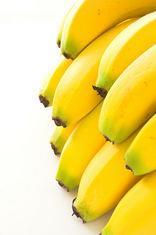
ACP banana exporters have implored the EU to slow down its reduction of import duties from Latin America, as the long-standing deadlock over tariffs continues.
The EU has re-negotiated a deal which had collapsed, originally made in July on the sidelines of a meeting of ministers seeking a breakthrough in the World Trade Organisation’s (WTO) Doha round in Geneva, allowing a cut in tariffs from Latin America.
Under the deal, duty would be cut to €114 (£103) by 2016, from €176 now, but its success is entirely dependent on the success of the Doha agreement which could, if one suggestion is followed, freeze remaining cuts if there is no Doha decision by 2012.
But the negotiations have angered producers in the African, Caribbean and Pacific (ACP) group, largely former colonies of Britain, France and Portugal, who feel their development has not been supported, reports Reuters.
The ACP countries have enjoyed tariff-free exporting to the lucrative EU market for some years and fear Europe could become awash with less expensive fruit from Latin America, which already supplies some 80 per cent of EU banana imports.
Anatole Ebanda Alima, Europe delegate for the Cameroon Banana Association ASSOBACAM, said: "For us, it's really too quick and too low (a tariff). It doesn't give us time to adjust; for certain countries it would mean saying goodbye to bananas.
"The ACPs have made a proposal... a reduction to €150... and maintain that level for a certain number of years and compensate that with accompanying measures to allow them (farmers) to adapt. We have proposed a freeze of four years."
After the world’s largest banana export, Ecuador, called on Europe to show support to Latin America, the EU pledged to cut tariffs as early as possible to €148.
The EU is believed to be considering offering the ACP countries €100m from 2010 to 2013 as a form of compensation.
Philippe Mavel, European delegate for Ivory Coast's Central Organisation of Pineapple, Banana and Mango Producers-Exporters (OCAB), told Reuters: "There are several studies that have shown that for the moment, below €150 it would be difficult for ACP countries.
"This has to be integrated within Doha, in a separate agreement linked to Doha because it was an element of the negotiation at the time, in July.”
The balance of power remains finely poised, with the EU obliged to “bring its policy into compliance” with Latin America after several WTO cases, but the ACP countries still hold the threat of blocking an agreement in the Doha round.



